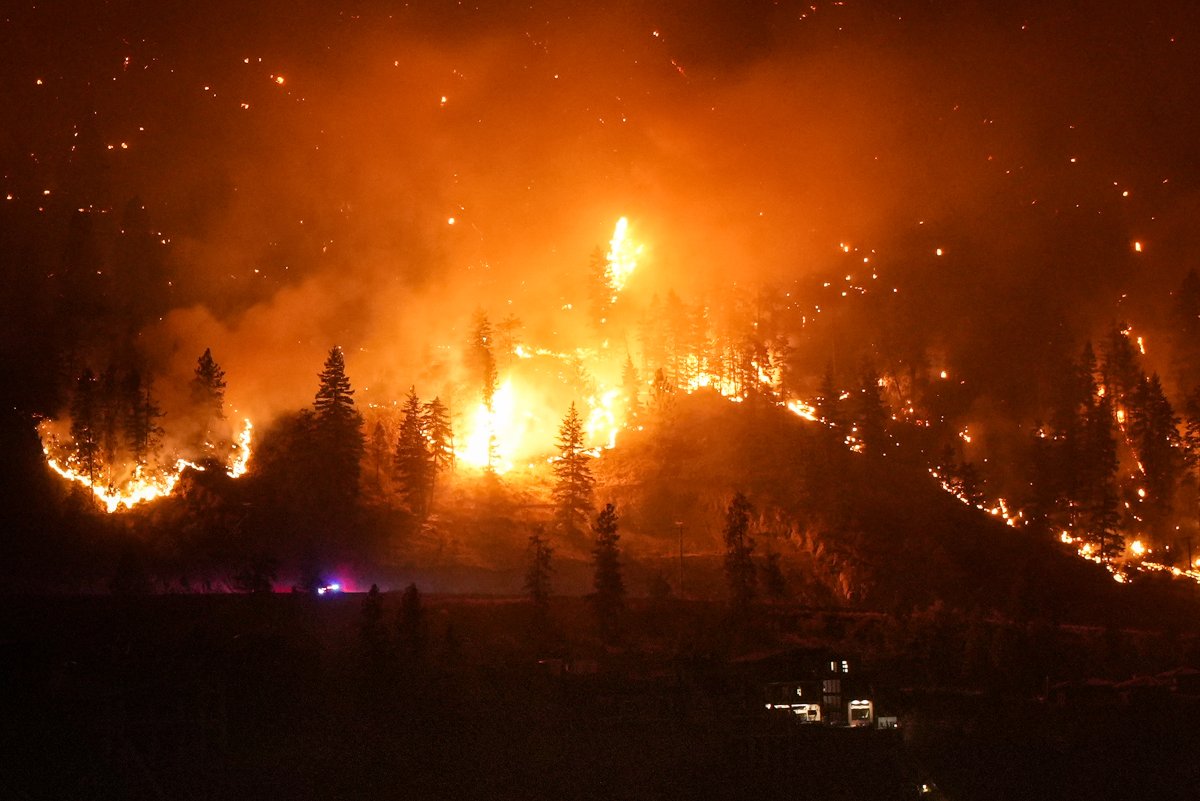Those who have lost their homes from wildfires in Canada may have a long wait ahead of them before having a new place to call home.

Canada’s ongoing housing crisis and construction labour shortages are affecting how quickly homes can be rebuilt, experts told Global News.
“(Wildfires) are putting a great strain on the system, and that includes the construction and renovation industry,” said Glenn McGillivray, the managing director of the Institute for Catastrophic Loss Reduction (ICLR). The institute works to help Canadians deal with natural disasters.
“We still have homes that are not completely fixed.”
McGillivray said some homes hit by natural disasters a couple of years ago, including in Barrie, Ont., which saw a tornado in 2021, still aren’t repaired. That’s not to mention the town of Lytton, B.C., which was destroyed by a wildfire in 2021. McGillivray said that reconstruction has barely started there.
Wildfires have also threatened hard-to-reach places, such as Yellowknife in the Northwest Territories. McGillivray said it is costlier to get materials up there and to attract labour there, as well.

What’s holding up the repairs and rebuilds? Canada is already in the midst of a housing crisis and is struggling to find labour to create more supply. Naturally, finding the labour to rebuild homes from scratch has been a challenge and is putting a strain on an already stressed system, McGillivray said.
Justin Johnston, the chair of the Canadian Homebuilders Association of Nova Scotia, told Global News that part of the problem is commercial, residential and industry sectors pull from the same labour pool, which includes carpenters, plumbers and electricians.
“That’s why we’re seeing the immense shortages that we’re seeing right now of skilled labour and skilled trade,” he said.
“It’s just one pool that we’re all pulling from. Unfortunately, there just isn’t enough to go through.”
Cities are currently in the midst of a massive push to build new homes as supply has remained limited, driving prices of homes through the roof. Johnston said most contractors are six months to a year backlogged, and some bigger projects have been delayed due to labour shortages.

Adding to the labour crunch is an ageing talent pool. Johnston said that 50 to 60 per cent of the trade labour force will retire in the next decade. And while Canada is turning to immigration to fill in its labour shortage, finding the talent and getting them online takes time, as well.
To boot, rebuilding destroyed communities is no easy task.
Johnston said that you basically have to start from scratch, and doing the foundation work can be complex to get a permit and workers focused on that process have been occupied by the commercial industry and are hard to come by. However, delays in that part of the job then hold up further work, such as electrical and plumbing, which can’t be done until those initial steps are taken care of.
“Those initial stages are going to be the ones that are going to delay the process and unfortunately, are the ones that have the biggest draw on resources right now,” Johnston said.
Then, once the plans have been set, there are also bureaucratic hurdles to jump, such as figuring out what insurance can cover and getting that approved.
Felix von Vegesack lost his Killiney Beach, B.C., home in a 2021 wildfire. Two years later it still hasn’t been rebuilt, and he said he’s buried in paperwork, including environmental and geotechnical studies.
“Disgusting. It’s just disgusting,” he told Global News earlier in August. “I just finally got my paperwork in. I have report after report after report.
“Just hire your lawyer immediately. Get a contract signed with a contractor. Don’t worry about the bidding process. You need to hire a contractor immediately.”‘
In the meantime, families have been displaced and are living wherever they can until their new home is built, which can be a huge challenge, Johnston said, as they are competing with others shopping in the limited housing market.
Other options, such as modular housing, are being explored to build homes quicker, he said.
“(The wildfires) couldn’t have come at a worse time,” Johnston said. “We were in a crisis already.”
— with files from Global News’ Alyssa Julie, Simon Little and Christa Dao.
- As Canada’s tax deadline nears, what happens if you don’t file your return?
- Posters promoting ‘Steal From Loblaws Day’ are circulating. How did we get here?
- Planning a summer trip to Quebec’s Îles-de-la-Madeleine? You’ll have to pay up
- Drumheller hoping to break record for ‘largest gathering of people dressed as dinosaurs’







Comments